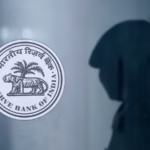Introduction
In a significant development within India’s fintech landscape, digital lending firm Lendingkart Finance has reported a financial downturn for the fiscal year 2024-25. Backed by global investor Temasek Holdings (Singapore’s state-owned investment firm), Lendingkart’s pre-tax losses have triggered a breach of its bond covenant—a critical red flag for lenders, investors, and regulators alike.
This article delves into what the breach entails, why it matters, and the broader implications for the digital lending ecosystem in India.
Who Is Lendingkart?
Lendingkart Finance is one of India’s leading digital non-banking financial companies (NBFCs), specializing in providing working capital and business loans to small and medium enterprises (SMEs). Founded in 2014, the firm quickly rose to prominence through its use of alternative credit models, data analytics, and end-to-end digital processes. As of recent years, Lendingkart had disbursed loans to over 150,000 MSMEs across more than 1,300 cities in India.
Temasek and other institutional backers invested in Lendingkart with the expectation of sustainable growth in India’s underpenetrated SME credit market.
The Breach: What Happened?
According to recent disclosures, Lendingkart posted pre-tax losses in the 2024-25 fiscal year. These losses violated financial performance thresholds outlined in the company’s bond agreements—known as bond covenants. A bond covenant is a legally binding term in a debt contract that requires the borrower to meet specific financial metrics, such as profitability ratios, capital adequacy, or earnings targets.
❗ Key Trigger:
- The losses fell below the minimum income/profitability requirements, thus breaching covenants tied to Lendingkart’s issued bonds.
- This breach could technically place Lendingkart in default, even if actual payments (principal or interest) are not yet missed.
Why This Is a Big Deal
- Financing Constraints
Breaching a bond covenant typically erodes lender trust. Lendingkart may face difficulties in:- Refinancing existing debt
- Raising new capital
- Renegotiating terms with bondholders
- Investor Sentiment
Investors, particularly institutional ones like Temasek, are highly sensitive to such red flags. The breach could:- Lower Lendingkart’s credit rating
- Trigger sell-offs or write-downs on its securities
- Result in increased cost of capital
- Regulatory Scrutiny
The Reserve Bank of India (RBI) has already been closely monitoring the digital lending space. This breach could invite:- Closer inspection of NBFC compliance
- Stricter norms around asset quality and risk management
- Broader Implications for Fintech Lending
Lendingkart is a flagship player in the digital MSME lending segment. Its financial trouble could:- Raise concerns about the sustainability of fintech credit models
- Cause investors to reevaluate exposure to similar NBFCs
- Create caution among MSMEs, who rely on these lenders for working capital
Industry Reaction
Though Lendingkart has not defaulted on any payments yet, financial analysts view the covenant breach as a canary in the coal mine for digital lenders in India. With rising credit costs, macroeconomic uncertainty, and tightening regulations, profitability remains a challenge.
Lendingkart’s management may now need to:
- Infuse equity capital from existing backers
- Restructure debt obligations
- Consider cost rationalization and portfolio pruning
The focus will be on whether the company can reverse losses and restore compliance with its financial covenants in the next fiscal year.
Conclusion
Lendingkart’s covenant breach marks a pivotal moment for India’s fintech lending space. While the company has not defaulted outright, the incident underscores the fragility of credit-driven fintech models in a high-interest-rate, tightly regulated environment. It also serves as a wake-up call for stakeholders across the lending ecosystem—from investors and regulators to borrowers and fintech peers.
The coming months will be crucial as Lendingkart tries to regain financial footing and reassure its partners. For now, this situation stands as a strong reminder: growth at scale in fintech must be balanced with strong risk management and profitability metrics.
















